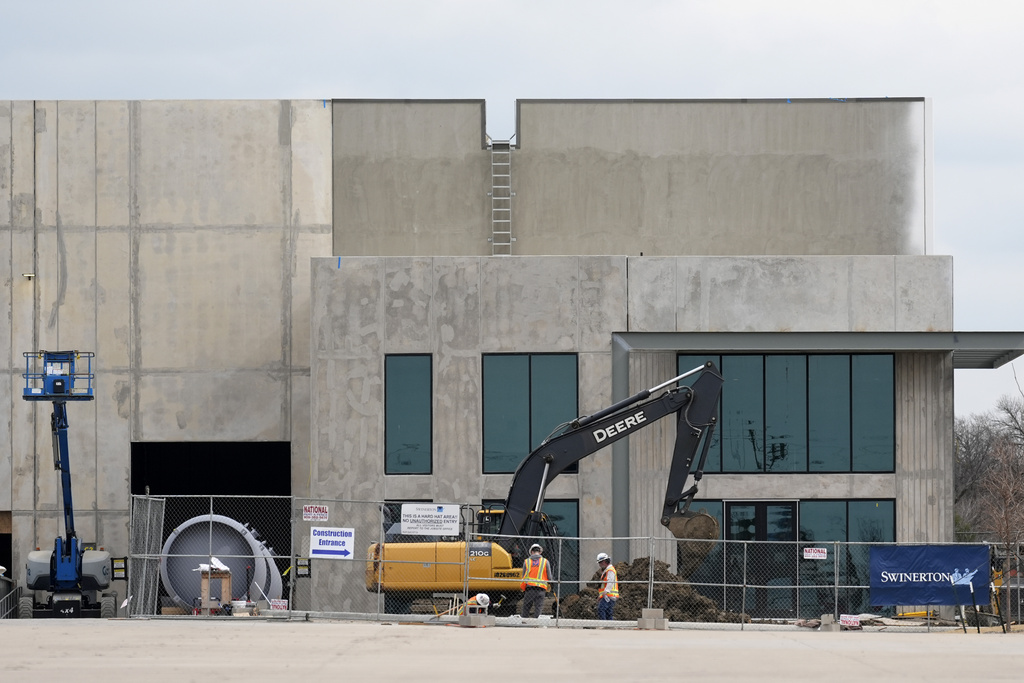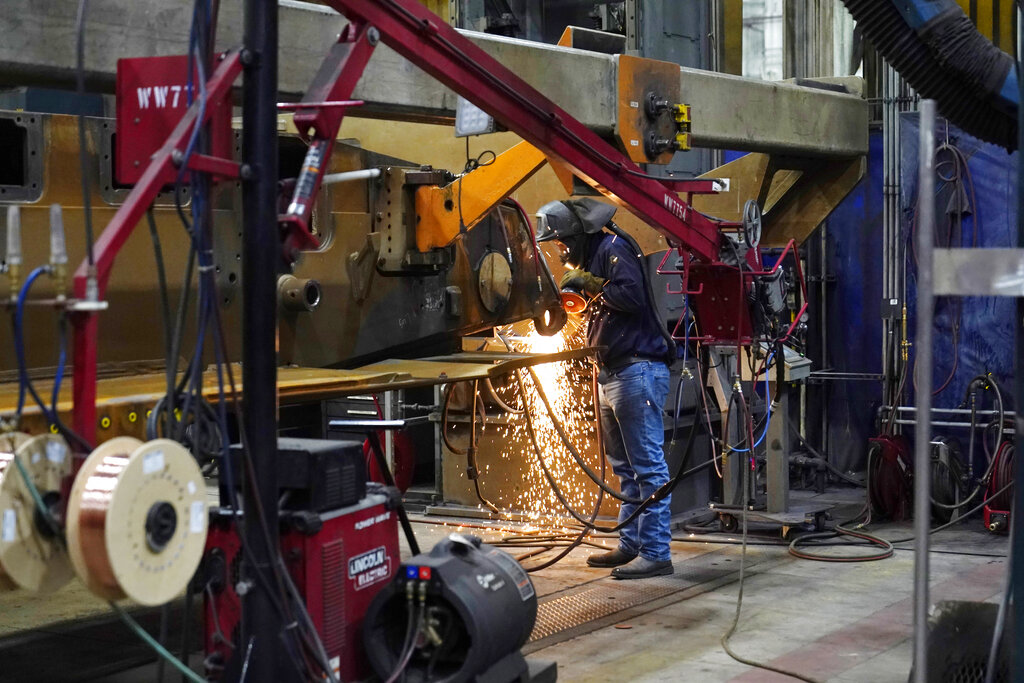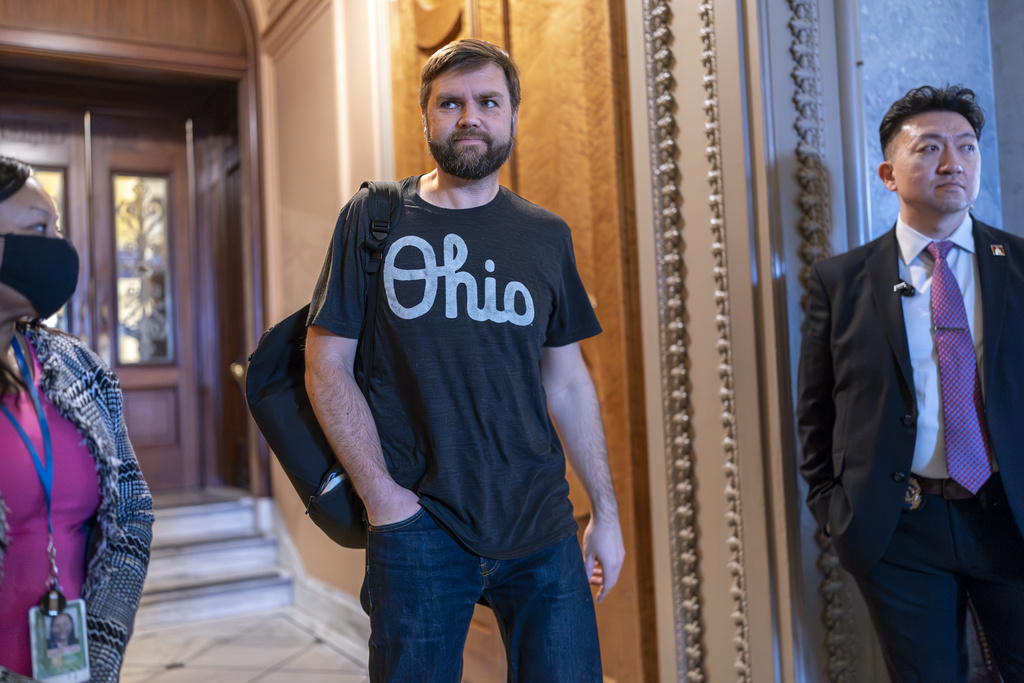The war in Ukraine has raged for two years and has reached an impasse. It has also become a political lightning rod back home between those who believe funding is essential to keep Vladimir Putin contained and those who refuse to give Volodymyr Zelensky a blank check. In this series, Costs of War, the Washington Examiner will investigate the state of the war itself, the corruption involved, the U.S. states that benefit from spending, and how it’ll shape the 2024 election. Part three will look at the states receiving the most in Ukraine aid and the lawmakers who represent them.
Mesquite is best known as the rodeo capital of Texas.
Each year, thousands of people flock to the tiny quintessential town between June and August to watch the world-famous timed and rough-stock competition. The three-month rodeo season has been one of Mesquite’s biggest draws for decades — but another economic driver could soon take the top spot.

General Dynamics Ordnance and Tactical Systems recently moved to town and took over a massive 240,011-square-foot building near downtown Mesquite, turning a vacant office space off the highway into an artillery and weapons production plant that is vital to the war in Ukraine.
The facility is on track to double the current output, replenish stockpiles, and prepare ammunition. It’s also expected to turn the 150,108-person town into a hotbed of economic opportunity.
“Mesquite has had a small-town feel for many years, but we are becoming a robust commercial center,” City Manager Cliff Keheley said. “Our residents no longer have to leave Mesquite to find employment.”
The rush to arm Ukraine and the defense production windfall that’s followed has been a major boon for the 21st-most populous city in Texas, which has been trying to jump-start a comeback for years.

But the situation in Mesquite isn’t a one-off.
In the two years since Russia invaded neighboring Ukraine, the U.S. defense industry has experienced a spike in orders for weapons and munitions not only from the U.S. government but also from European allies. Of the billions of dollars Congress has approved to help Ukraine, more than 64% of it has stayed in the United States and helped small towns and cities thrive.
“That’s one of the things that is misunderstood … how important that funding is for employment and production around the country,” said Lael Brainard, director of the White House National Economic Council.
The Ukraine money has injected new life into factories crisscrossing America in the form of government contracts, including those that create Javelin missiles in Florida and Alabama, Abrams tank production lines in Lima, Ohio, and a West Virginia plant that makes propulsion motors for guided multiple-launch rockets.
The Department of Defense released new figures in February that showed the top defense industrial base impacts included six states that received more than a billion dollars each. Arizona has seen $1.8 billion; Arkansas, $1.6 billion; Pennsylvania, $1.6 billion; California, $1.4 billion; Florida, $1.1 billion; and Alabama, $1 billion. The highest amounts of money for direct industrial investments include $703 million for Arkansas, $519 million for Texas, $428 million for Pennsylvania, $326 million for Arizona, and $208 million for California.
The new weapons part plant in Mesquite has created at least 125 well-paying jobs, including 50 salaried and another 75 to 100 hourly workers, and brought business opportunities to local suppliers, retailers, and restaurants.
But instead of embracing newfound opportunities in a city that needed a lifeline, lawmakers representing the area, such as Rep. Lance Gooden (R-TX), have voted against Ukraine aid bills that directly benefit his community. Emails to Gooden for comment were not returned.
The monthslong political stalemate in Washington over Ukraine funding has not only impaired Ukraine’s ability to keep Russian forces at bay but has also directly affected more than 70 cities across 31 U.S. states receiving Ukraine money.
“At a time when both major parties are competing to win working-class votes and strengthen the U.S. manufacturing base, our military aid to Ukraine does exactly that — it is providing a major cash infusion into factories across the country that directly benefits American workers,” said Marc Thiessen, a columnist and senior fellow at American Enterprise Institute. “It is also creating jobs and opportunities for local suppliers, shops, restaurants, and other businesses that support the factories rolling out weapons.”
Lawmakers whose states are getting millions of dollars, and sometimes billions, are among the most anti-Ukraine voices in Congress. They include Sens. J.D. Vance (R-OH), Tommy Tuberville (R-AL), Josh Hawley (R-MO), and Mike Braun (R-IN), as well as Reps. Matt Gaetz (R-FL) and Anna Paulina Luna (R-FL).
In Lima, Ohio, United Auto Workers union members have been busy churning out Abrams tanks and Stryker combat vehicles for Ukraine tanks, yet both Jordan and Vance have been vocal about not signing off on more money for Ukraine.

The Lima facility has been in business since World War II. It is the country’s only tank factory and was nearly shuttered in 2012 as part of drastic sequestration cuts under former President Barack Obama but came roaring back under former President Donald Trump, who toured the facility in 2019 and took credit for not letting it go under.
“Well, you better love me,” Trump said at the time to cheers from union workers. “I kept this place open, that I can tell you. They said, ‘We’re closing it.’ And I said, ‘No, we’re not.’ And now you’re doing record business.”
Despite Trump’s ringing endorsement just a few years ago, he has openly opposed the Senate-approved $95.34 billion military aid package for Ukraine and Israel. His allies in the House have indicated they are in no rush to vote on it either.
Over the weekend, global leaders gathered at the annual Munich Security Conference in Germany as news broke that Russian opposition figure Alexei Navalny had died in prison. The news, coupled with reports that Ukraine suffered a significant setback to Russian forces in Avdiivka, has ramped up the sense of urgency for Congress to act.
Many House Republicans have claimed the U.S. cannot afford to keep supporting Ukraine and argue the money would be better spent on America’s immigration crisis.
Jordan, one of Trump’s closest allies, told the Washington Examiner that “there’s no question why Ukraine wants Abrams tanks, and that’s because they’re one of the most advanced and most lethal weapons systems ever built.”
“We’re proud that they’re made in Ohio’s 4th District, but our constituents have great concerns about seemingly unlimited taxpayer money being used to fund the war in Ukraine, especially when Americans are struggling at home with rising inflation and places like East Palestine continue to be ignored by the Biden administration,” he added.
Vance, another Trump ally, argued Sunday at the conference in Germany that the problem with greenlighting funds for Ukraine is that “there’s no clear end point” and that the U.S. doesn’t make enough weapons to support wars in Eastern Europe, the Middle East, and “potentially a contingency in East Asia.”

“Can we send the level of weaponry we’ve sent for the last 18 months?” he asked. “We simply cannot. No matter how many checks the U.S. Congress writes, we are limited there.”
Dalibor Rohac, a senior fellow at AEI, told the Washington Examiner he finds it perplexing that Republican lawmakers are voting against aid.
“It illustrates to me just how much U.S. politics seems detached from the pursuit of public policy and how much it’s become about emoting and posturing,” he said. “It is not even clear that Republican voters in districts that benefit from additional defense spending will necessarily punish those opposing the aid to Ukraine, especially if they’ve bought into the broader anti-Ukrainian narrative on the Right. Even if they do, such a threat is smaller than the looming danger of a primary challenger for those who are supportive of Ukraine.”
In Florida, Luna told the Washington Examiner that President Joe Biden’s push for Ukraine aid is “literally bankrupting Americans to fight wars abroad when they could prosper by working for our own interests.”
“Arguing that our district can only be economically prosperous by creating weapon systems for foreign wars that hurt my constituents and our country is absurd,” said Luna, who is a veteran and whose husband served and was wounded in Afghanistan.
CLICK HERE FOR MORE FROM THE WASHINGTON EXAMINER
Gaetz struck a more dramatic tone.
“I don’t vote for or against wars based on which congressional districts get the jobs,” he told the Washington Examiner in an emailed statement. “The war in Ukraine carries grave risk of escalation and/or accident that could wipe out human civilization. Only a morally bankrupt person would balance that risk against short-term parochial gains. My commitment is not just to the people who build the equipment, but to the wives, parents, and grandparents of the military personnel our leaders send off to die in wars. That’s why I prefer America be in fewer of them and have fought to end them during my time in Congress.”
